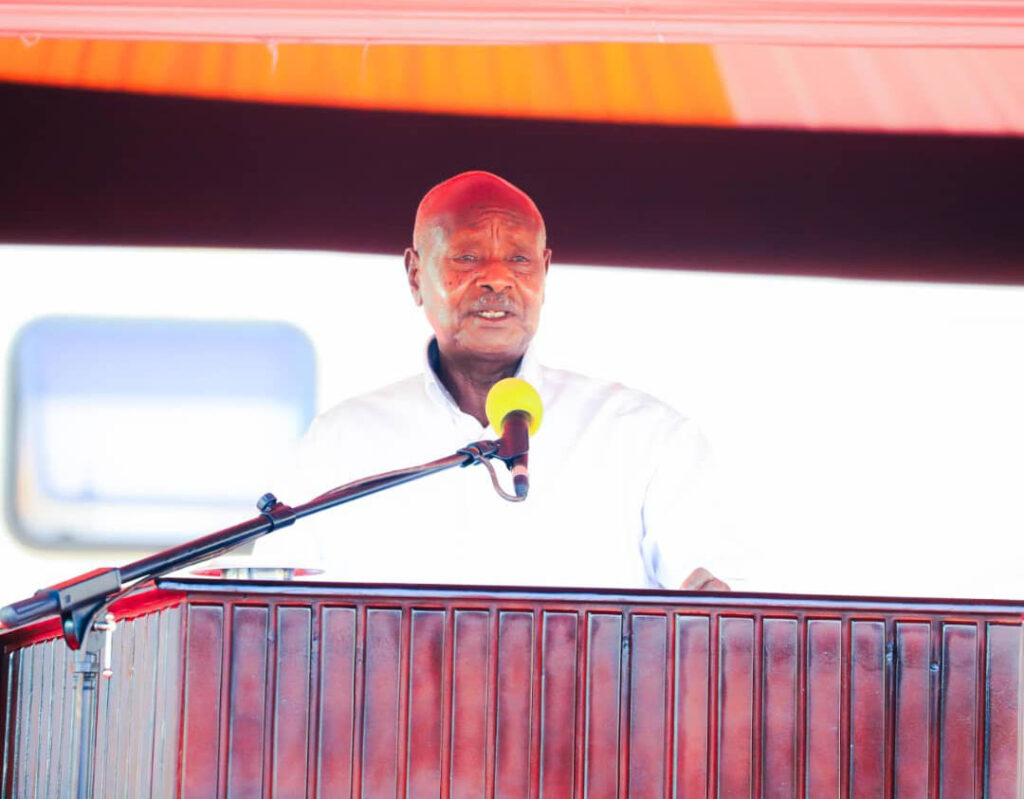President Yoweri Museveni has pledged to take decisive action against exploitative money lenders who prey on desperate and uninformed citizens.
He announced that his government would pursue the enactment of a law to combat these unethical practices.
Targeting Exploitative Practices
During the Southern and Eastern Africa Chief Justices Forum conference at Speke Resort Munyonyo in Kampala on October 1, President Museveni criticized money lenders for exploiting rural villagers.
He stated, “Money lenders are becoming a problem. They go to our villagers [and] cheat them.”
The President provided an example of how cunning money lenders take advantage of people’s ignorance, highlighting the disparity between inflation rates and the exorbitant interest rates charged by lenders.
Unfair Interest Rates
“Inflation rate in Uganda is very low. It is only three percent… even lower, but you find people charging 240 percent, in an economy where the inflation rate is only two percent. Why do you do that?” President Museveni questioned.
Hidden Contracts and Deceptive Practices
He further explained how money lenders conceal lending agreements as purchase contracts, making it harder for the borrower to understand the deal.
“An illiterate villager might sign a document thinking they are borrowing money, but the contract states that they are selling their house. This is clearly taking advantage of their ignorance,” Museveni noted.
Previous Warnings Against Money Lenders
This isn’t the first time President Museveni has addressed the issue of exploitative money lenders.
In past speeches, he has consistently criticized them for charging exorbitant interest rates and warned that their actions are stifling Uganda’s economic growth.
Forum for Chief Justices: Addressing Broader Justice Issues
Regional Justice Challenges
Chief Justice Alfonse Owiny-Dollo addressed the common justice-related challenges faced across African countries.
These included poor court infrastructure, delayed adjudication, poverty, corruption, and a lack of technological resources, among others.
“We face geographical barriers, socio-economic challenges, and gender chauvinism in delivering justice,” Justice Owiny-Dollo explained. He expressed hope that the conference would generate practical solutions to improve justice delivery in the region.
Learning from One Another
The Chief Justice emphasized the importance of collaboration among judiciaries to enhance justice systems.
“This forum reminds us of the responsibility to learn from each other and to adjust our mindsets when necessary,” he added.
Focus on Judicial Reforms
Justice Chibita’s Call for Immediate Action
Supreme Court Justice Mike Chibita reflected on the theme of the conference, “Enhanced access to justice: Underscoring reforms in African judiciaries.” He pointed out that challenges in justice are not confined to Africa but are global in nature, driven by factors like technological advancement, population growth, and urbanization.
“Judicial leaders must champion these reforms to ensure justice systems evolve,” Chibita urged, calling for collective action and sharing of best practices to drive transformation.
Financial Support for African Judiciaries
Appeal for Better Resources
The Chief Justice of Eswatini, Bheki Maphalala, made a strong appeal for African governments to provide adequate financial resources to their judiciaries.
He stressed that many judicial officers across the continent suffer from poor pay and inadequate working conditions, hindering the administration of justice.
“If justice and the rule of law are to be realized, our judiciaries need more financial support,” Maphalala stated.
The Southern and Eastern Africa Chief Justices Forum, bringing together leaders from more than 15 countries, will continue until October 4, where further discussions on improving access to justice and judicial reforms will take place.

